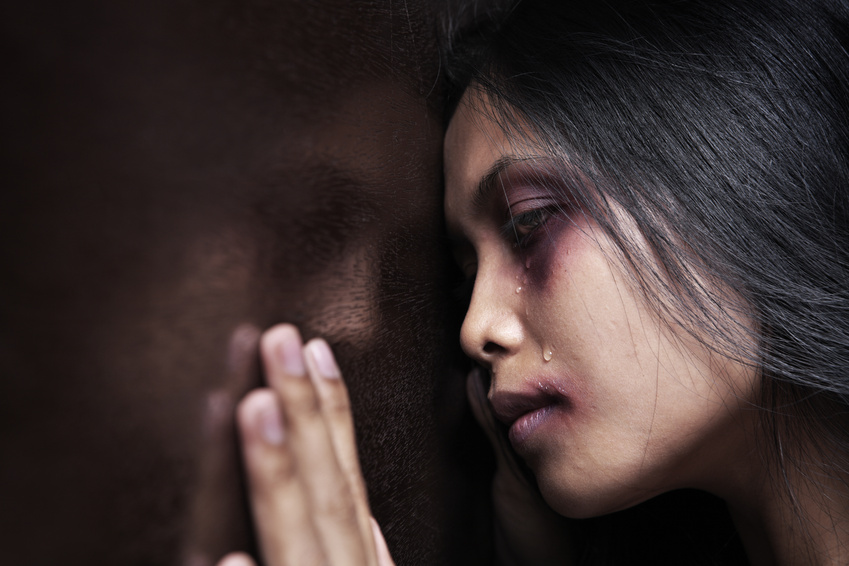
“If he does not hit you, he does not love you enough” is the sort of age-old ‘truism’ that Zimbabwe activists say gives men free rein to beat their wives and stops women complaining.
But things are now changing, according to women’s rights activists, albeit slowly and from a crashingly low base.
At least one in three women in Zimbabwe encounters physical violence, most at the hands of a husband or partner – a grim statistic that has only worsened in lockdown as domestic tensions play out around the clock and behind locked doors.
Take Yvonne Zimuto, who did not even realise her husband had no right to beat her until she visited a women’s legal clinic in Mutare, Zimbabwe’s third-largest city, and learnt of her rights and how to report her problems to the police.
As COVID-19 lockdowns kept women trapped inside with their abusers, Zimbabwean advocacy groups pushed to get as much legal information out to women like Zimuto as possible, knowing this knowledge could save their lives.
“I did not know that I have my rights as a woman…that I am protected by the law (but) acquiring education on my rights gave me the courage to seek help,” said the unemployed mother of three from her friend’s house in Mutare.
“Now if my rights are being violated I know which unit to report to at the police,” Zimuto, 42, who asked for her name to be changed for her safety, told the Thomson Reuters Foundation.
As in many other countries around the world, Zimbabwe saw a spike in violence against women when lockdown hit.
In 2020, the national gender-based violence hotline run by women’s rights charity Musasa answered nearly 7,000 calls from main women in distress, a 40% increase from the previous year.
By the end of 2020, Musasa had helped some 40,000 women via its hotline as well as shelters, mobile clinics, social media sites and legal assistance centres, said Rotina Mafume Musara, advocacy and communications officer at Musasa.
Advocacy groups say many more incidents go undetected, with about nine in 10 of reported cases linked to abuse by a partner.
“Cases of violence against women and girls have been under-reported even before COVID-19,” said Christon Zimbizi, from the Voluntary Service Overseas (VSO), an international charity that supports survivors of violence.
VSO banded together with Women and Law in Southern Africa (WLSA) to support women like Zimuto with advice and legal aid.
They are among a slew of organisations trying to help women in Zimbabwe, where nearly 8 million people, about half the population, live in extreme poverty.
Zimuto did not want to press charges or divorce but did want the beatings to stop. So she was referred to the police’s Victim Friendly Unit, where counsellors mediated between the couple.
“I thought it would destroy my marriage but since then, my husband has stopped abusing me,” said Zimuto, whose success has emboldened her to refer friends to the same service.

Hazel Kamhungira removes weeds from her vegetable garden in Mutare, Zimbabwe. May 22, 2021. Thomson Reuters Foundation/Farai Shawn Matiashe
CASH AND CULTURE
It is not just partners who are causing trouble at home.
In Hobhouse, a densely populated suburb of Mutare, 40-year-old widow Hazel Kamhungira could not get her wayward tenant to pay his rent.
“He insulted me while drunk and called me vulgar names,” said Kamhungira, who used a pseudonym to stay safe.
“This made me cry. I thought if my husband was alive he would not have been abusing me and taking advantage that I am a woman,” she told the Thomson Reuters Foundation from her home.
She went to WLSA and was then referred to Rent Board, a government tribunal that handles such disputes.
“They assisted me to evict him…and ordered him to pay me the outstanding rent,” said Kamhungira, who said the legal and emotional support from these organisations helped protect her.
According to Musasa, psychological violence makes up 55% of reported abuse cases, followed by physical violence at 22%, economic violence at 15% and sexual violence at 8%.
Caroline Gwatiringa, a communications officer at WLSA, said on top of financial challenges that hold women back from seeking justice through the courts, social norms are also a hindrance.
“Women’s hesitation to report such cases is a culmination of both cultural and religious values as well as family interference,” said Gwatiringa.
Zimbizi from VSO agreed that speaking out is a taboo for some women – worse than the abuse itself – so he works with religious leaders to sway opinion and bust age-old myths.
“There are different beliefs such as ‘if he does not hit you, he does not love you enough’ and ‘a woman should suffer in silence and pray about her pain,'” Zimbizi said. “Men must also be sensitised to do away with toxic masculinities.”
KNOWLEDGE
Since the outset of 2020, WLSA has helped more than 400 women with legal advice and is representing 16 women in court, a number expected to rise as lockdown restrictions ease.
The pandemic has made it hard for victims of abuse to get hold of any help or even raise an alarm, experts said.
The Legal Resources Foundation, a lawyer-led organisation, said it helped 115 women in 2020’s strict three-month lockdown.
As courts opened up – that number shot up five-fold.
“This shows that people were being abused but they could not get protection from the courts,” said Lucia Masuka-Zanhi, a national director at the foundation.
Julie Stewart, a director at the Southern and Eastern African Centre for Women’s Law (SEARCWL), a research and teaching centre at the University of Zimbabwe, said the power of women knowing their legal rights could not be underestimated.
“Communities need to be aware of the importance of providing support and protection to women and girls so that they can live lives free from violence.

